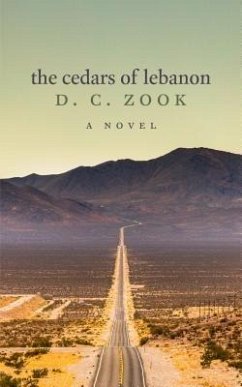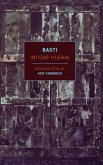A journalist from New York is plunged into a crisis of faith after he is accused of "embellishing" his stories and taking certain liberties with the truth. He decides to head West to invent a new life for himself, but on the long drive to Los Angeles, the fabled City of Angels, he is forced to make an unexpected stop in Las Cruces, New Mexico, where he comes across a street-theater group rehearsing in a local bar. What he doesn't know in that moment is that this seemingly random encounter will change his life forever. The leader of the street-theater group is Maria, who is everything the journalist is not. Faith comes easily and effortlessly to Maria. She trusts strangers, she trusts her intuition, and she believes that all things happen for a reason. Maria remains defiantly positive in a world of negative things. She has a subtle charisma and an enchanting grit that draw in those around her, and when she invites the journalist to join them, he is surprised at how easily he accepts the invitation, almost as if it were against his will. He is entranced by Maria's ways. He wants to see and experience the world as Maria sees it, to believe that there is an inherent goodness in all things, but struggles to find the courage and conviction to do so. Under Maria's direction, the group's theatrical performances become increasingly dramatic, and at one point they end up inciting a riot during a show at a church festival. They are subsequently pursued around New Mexico by the self-styled high priest of the law, Sheriff Lex, who wants to make an example of them and stamp out any hint of rebellion in his well-ordered, law-abiding world. During this cat-and-mouse game of pursuit, Maria and the group are helped and guided by a quirkily diverse cast of characters. A continuous stream of Native American priests and elders offer them shelter and protection on native lands. Then there is Andrew, a Croatian priest raised in the highlands of Papua New Guinea, as well as Khalil, a Muslim imam from a local Islamic center who supports their struggle, and Harinder, a bhangra-loving Sikh who adopts their cause as his own. The drama comes to a head when the group is finally cornered by Sheriff Lex in the high desert just outside of Taos and they declare sanctuary in an abandoned church. A standoff ensues, opening the question of which force should prevail in the world-the law of order, as demanded by Sheriff Lex, or the law of love, as offered by Maria. The Cedars of Lebanon is a novel not just about belief, but about the eternal struggle to believe. This is a novel that shows in its own unique way that meaningful life would be impossible without some sort of faith, even if that faith consists only in the act of learning to trust others, or to offer unconditional kindness in a world that seems relentlessly unkind. Above all else, The Cedars of Lebanon shows how a life plagued by doubt and uncertainty is really an incomplete life, and celebrates the bravado it takes to live life to its fullest and to appreciate the gifts that life has to offer, no matter how small they may be. The Cedars of Lebanon tells a story like no other, seen through they eyes of those who, each in their own way, are forever asking questions and forever searching for answers.
Dieser Download kann aus rechtlichen Gründen nur mit Rechnungsadresse in A, D ausgeliefert werden.









